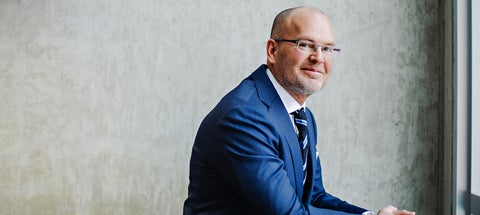Discerning fact from fiction. We’re on it.
Illuminating human bias and our ability to be misled.
False information is everywhere. Are you susceptible to falling for it? A new study holds clues that can help us understand our vulnerabilities and opportunities when it comes to detecting misleading content – and protecting critical decisions around our finances, health and vote.
86%
of people reported that they have been exposed to misinformation on social media (Ipsos)
90%
of Canadians said they have fallen for fake news (Canada’s Centre for International Governance Innovation)
68%
of Canadians pointed at social media as the key sources of misinformation (CBC)
Fact can be stranger than fiction. We can help.
Quick knowledge, big insights! Subscribe to the Innovation Insider for health, climate, tech, physics and human behaviour innovations in under two minutes.
A first step to mitigate misinformation is to increase people’s awareness of 'BS' being out there. This initial step could help control our receptivity to false information, thereby mitigating its economic impact on society.

Dr. Jonathan Fugelsang is a psychology professor, in the Faculty of Arts, who studies higher level cognition, and intuitive and analytic processes supporting complex reasoning and decision making. Shane Littrell (PhD Arts ’21 and not pictured) studies rational thinking and decision-making, with a particular focus on identifying factors underlying the spread of misinformation in various contexts and applied settings. He’s completing his post-doctoral fellowship at the University of Toronto.

About false information
According to research completed by Fugelsang and Littrell:
-
“BS” is information constructed with a carefree indifference for conveying truth, accuracy, clarity or meaning that is often used to impress, persuade or otherwise manipulate the opinions and attitudes of others.
-
“BS receptivity” is a measure of how persuasive and appealing "BS" is to a person.
-
“Bias blindspot” is a cognitive bias where individuals tend to recognize biases and errors in thinking and judgment in other people more readily than they do in themselves.
Societal futures
Demographic transformations, migration shifts, technological advances and geopolitical forces are creating rapid change in our world. Waterloo is committed to enhancing societal well-being by addressing past legacies and fostering constructive dialogue. Through innovation, we aim to create inclusive models that ensure every member of our community belongs and thrives.
Read on to discover more ways Waterloo is on it.

Making life with diabetes better →
See how one Waterloo researcher’s tiny, wearable patch is transforming life with diabetes.
